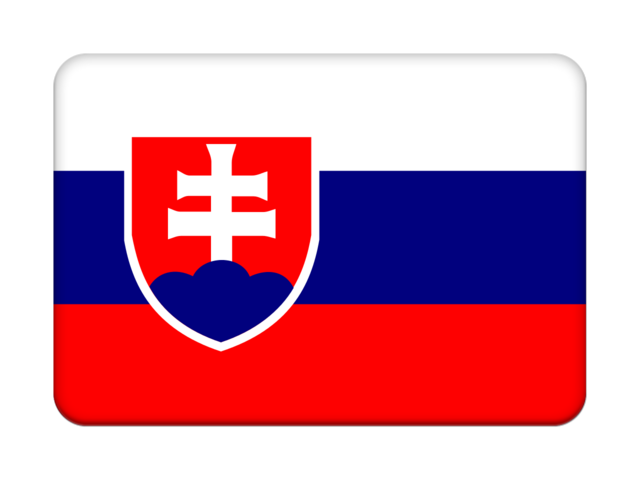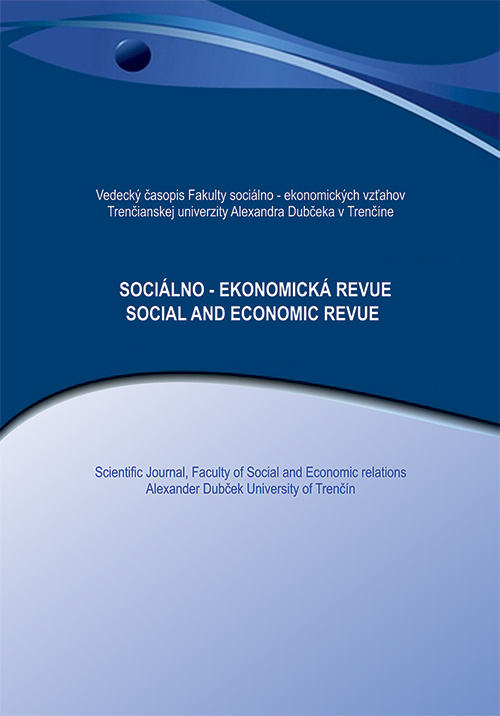TECHNOLOGIZED SOCIETY LIQUID POWER, LIQUID EDUCATION AND LIQUID CAREERS
This text is a critical - but not criticizing - essay focused on issues of the impact of technologization, globalization and liquid capitalism on the world of work and education. It is divided into four separate parts. The first part (From industrialization to technologization) deals with the definition of the key categories, which are industrialization, industrial revolution and technologization. The second part (Fluidity and Power) deals with the issue of Bauman's fluid modernity and related phenomena, which are fluid capitalism, globalization and changes in area of the division of labor. The third part (Liquid Education) is an analytical insight into the impacts of wider societal changes to the values in education, educational goals and the content of education in liquid capitalism. The last (4th) part (Liquid of work and occupation, liquid careers) deals with the changes of work and career in liquid modernity. The aim of the text is to provide a reminder, among other things, that despite the great respect for technological ability, intelligence and complexity of many engineers and technologists who create advanced robots (hardware but also software), issues of morality, ethics, culture, emotions and values belong in the hands of fields other than ICT. Even this still sovereign area of humanity is influenced by the advancing technologization of our society.
Release: 2022/1 Pages: 43-58 JEL classification: A14, B55, B24, B25, E24, J24, J31, J62, O33
DOI: https://doi.org/10.52665/ser20220105
Keywords: technologization, industrialization, industrial revolution, knowledge society, technocracy, liquid capitalism, liquid modernity, work, digital society, informational society
Section:
Contacts:
PhDr. Vojtěch KOŘEN
Faculty of Arts, Palacký University Olomouc
Department of Sociology, Andragogy and Cultural Anthropology
tř. Svobody 26, 779 00, Olomouc Czech Republic
e-mail: vojtech.koren01@upol.cz
Literature:
Bauman, Z. (2020). Tekutá modernita (Liguid modernity 2000) (2. ed.). (L. Droz, transl.) Prag, Czech Republic: Portál.
Bauman, Z. (2021). Tekutý život (Liguid life 2021) (1. ed.). (D. Korte, transl.) Prag, Czech Republic: Pulchra.
Becker, M. (2013). Personalentwicklung: Bildung, Förderung und Organisationsentwicklung in Theorie und Praxis (6. vyd.). Stuttgart, Germany: Schäffer-Poeschel.
Brezinka, W. (1992). Philosophy of Educational Knowledge: An Introduction to the Foundations of Science of Education, Philosophy of Education and Practical Pedagogics. Dordrecht: Springer Netherlands.
Ellström, P.-E. (2005). Two Logics of Learning. V E. Antonacopoulou, P. Jarvis, V. Andersen, B. Elkjaer, & S. Høyrup, Learning, Working and Living - Mapping the Terrain of Working Life Learning (p. 34-46). NY, NY, USA: Palgrave MacMillan. doi:10.1007/978-0-230-52235-0
European Commision. (19. 2 2020). On Artificial Intelligence - A European approach to excellence and trust. WHITE PAPER. Brussels, Belgium: European commission. Downloaded from https://ec.europa.eu/info/files/white-paper-artificial-intelligence-european-approach-excellence-and-trust_en
Ford, M. (2015). Rise of the robots – technology and the threat of a jobless future (1.ed.). New York, USA: Basic Books.
Fourastié, J. (1952). Le Grand Espoir du XXe siècle. Progrès technique, progrès économique, progrès social. Paris, France: Presses Universitaires de France.
Frey, C. B., & Osborne, M. A. (January 2017). The future of employment: How susceptible are jobs to computerisation? Technological Forecasting & Social Change(114), pages 254-280. doi:10.1016/j.techfore.2016.08.019
Gaarder, J. (1995). Sofiin svět: román o dějinách filosofie. Košice, Slovakia: Knižná dielňa Timotej.
Hecklau, F., Galeitzke, M., Flachs, S., & Kohl, H. (2016). Holistic Approach for Human Resource Management in Industry 4.0. Procedia CIRP [online](54), 1-6. doi:10.1016/j.procir.2016.05.102
Illeris (ed.), K. (2009). Contemporary Theories of Learning: Learning Theorists -- In Their Own Words. New York: Routledge.
Illeris, K. (2004a). A model for learning in working life. Journal of Workplace Learning(8), pages 431-441. doi:https://doi.org/10.1108/13665620410566405
Illeris, K. (2004b). Transformative Learning in the Perspective of a Comprehensive Learning Theory. Journal of Transformative Education(2), pages 79-89. doi:DOI:10.1177/1541344603262315
Illeris, K. (2007). How we learn: learning and non-learning in school and beyond (2. vyd.). Abingdon, UK: Routledge ISBN 0-203-93989-1.
Illeris, K. (2008). Competence development — the key to modern education, or just another buzzword? Asia Pacific Education Review(1), pages 1-4. doi:https://doi.org/10.1007/BF03025820
Illeris, K. (2015). The Development of a Comprehensive and Coherent Theory of Learning. European Journal of Education(1), pages 29 - 40. Downloaded from http://eds.b.ebscohost.com/eds/pdfviewer/pdfviewer?vid=1&sid=4b97dcce-94f9-4d53-837a-d2fb9c0ae535%40sessionmgr104
Ivanová, E., Masárová, J., & Koišová, E. (2019). Evaluation of the level of development of digital economy and digital skills in Slovak Republic and Czech Republic. Proceedings of scientific papers from the international scientific conference: The impact of Industry 4.0 on job creation 2019 (pages 155-163). Trenčín: FSEV TnUAD, Trenčín.
Ivanová, P., & Staněk, P. (2016). Štvrtá priemyselná revolúcia a piaty civilizačný zlom (1. vyd.). Bratislava, Slovakia: Elita.
Jarvis, P. (2007). Globalisation, Lifelong Learning and the Learning Society – Socilological perspectives. Abingdon: Routledge.
Kamensky, E. (2017). Society. Personality. Technologies: Social Paradoxes of Industry 4.0. Економічний часопис-ХХІ / Economic Annals-XXI [online], 164(3-4), 9-13. doi:10.21003/ea.V164-02
Kořen, V. (2019). The readiness of the labour market in the Czech Republic for Industry 4.0. Proceedings of scientific papers from the international scientific conference: The impact of Industry 4.0 on job creation 2018 (pages 101-113). Trenčín: FSEV TnUAD, Trenčín.
Kořen, V. (2020). Industry 4.0: The social dimension of education needs. Proceedings of scientific papers from the international scientific conference: The impact of Industry 4.0 on job creation 2019 (pages 203-214). Trenčín: FSEV TnUAD, Trenčín.
Liessmann, K. P. (2009). Teorie nevzdělanosti: omyly společnosti vědění (Theorie der Unbildung. Die Irrtümer der Wissensgesellschaft, 2006). (J. Zoubková, Transl.) Prag, Czech Republic: Academia.
Mařík, V., & al., e. (2016). Průmysl 4.0: výzva pro Českou republiku (1. ed.). Prag, Czech Republic: Management Press.
MPSV, M. p. (2019). Analýza zahraničních studií a trendů na trhu práce – vz. kompetence 4.0. Systémy identifikace kompetencí v mezinárodním srovnání. Praha, Česká republika. Downloaded from 25. January 2021, z mpsv.cz: https://www.mpsv.cz/documents/20142/372813/Anal%C3%BDza+zahrani%C4%8Dn%C3%ADch+studi%C3%AD_KOMPETENCE+4.0.pdf/d163120d-37b3-c5f1-809e-de56d31cc8d7
MPSV, M. p. (16. 1 2021). Projekty EU. Načteno z mpsv.cz: https://www.mpsv.cz/projekty-eu
OECD. (2018). Job Creation and Local Economic Development 2018: Preparing for the Future of Work (3. ed.). Paris: OECD Publishing. doi:https://doi.org/10.1787/9789264305342-en
Reich, R. B. (2002). The Future of Success: Working and Living in the New Economy. New York: Vintage Books.
Schwab, K. (2016). The Fourth Industrial Revolution. Geneva, Switzerland: World Economic Forum.
Sirůček, P. (8 2017). Čtvrtá průmyslová revoluce a společnost 5.0? (recenze publikace Staněk, P., Ivanová, P.: Štvrtá priemyslná revolúcia a piaty civilizačný zlom. Bratislava, Elita 2016. 215 s). Acta Oeconomica Pragensia, 25(4), pages 87-92. doi:https://doi.org/10.18267/j.aop.591.
Sirůček, P. (4 2018). Další bublina, nebo opravdu epochální změna? Politická ekonomie, 66(2), pages 278-283. doi:doi: 10.18267/j.polek.1188
Spitzer, M. (2012). Digitale Demenz: Wie wir uns und unsere Kinder um den Verstand bringen (1. vyd.). Minchen, Germany: Droemersche Verlagsanstalt Mnch.
Staněk, P., & Ivanová, P. (2017). Spoločnosť 5.0 - Ekonomika budúcnosti? (1. ed.). Bratislava, Slovakia: Wolters Kluwer.
Störig, H. J. (2007). Malé dějiny filosofie (Kleine Weltgeschichte der Philosophie 1990). Prag, Czech republic: Karmelitánské nakladatelství.
Šimek, D. (1996). Otevřená práce: andragogické souvislosti sociálního rozměru práce. (1. ed.). Olomouc: Vydavatelství Univerzity Palackého.
Tupa, J., & Benešová, A. (2017). Requirements for Education and Qualification of People in Industry 4.0. Procedia Manufacturing [onlina](11), 2195-2202. doi: 10.1016/j.promfg.2017.07.366.
WEF. (October 2020). Report, The Future of Jobs 2020. Získáno 25. Januar 2022, World Economic Forum: https://www.weforum.org/reports/the-future-of-jobs-report-2020


